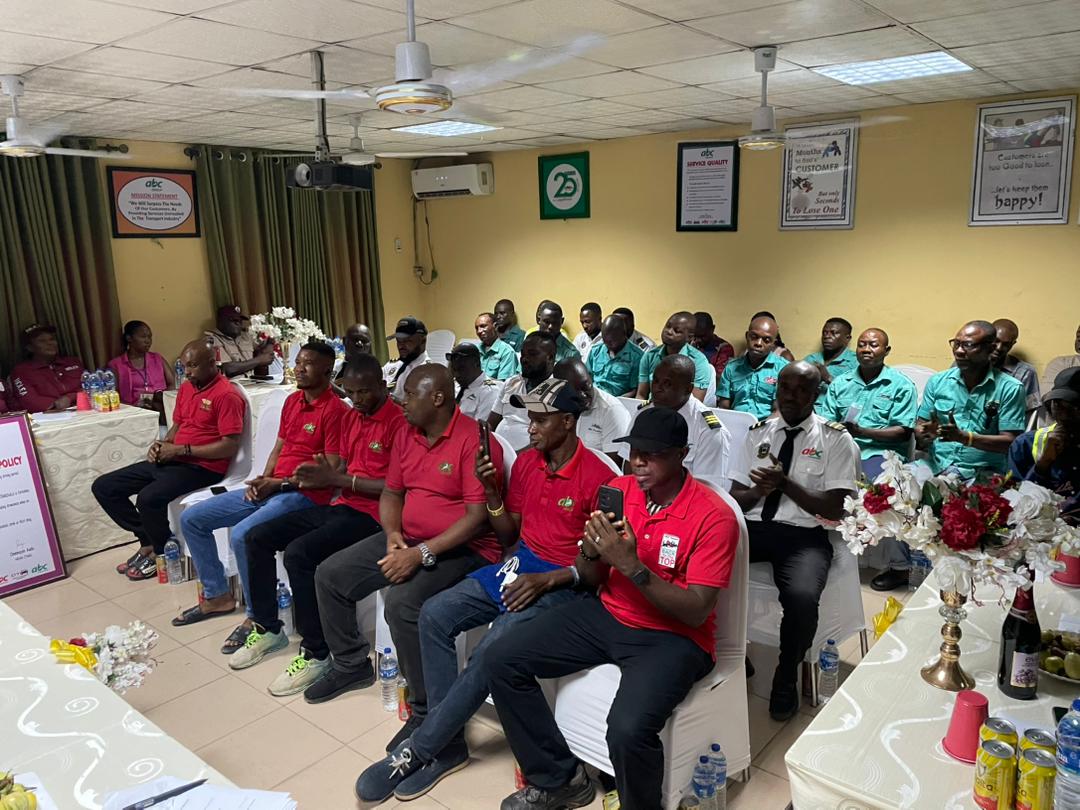metro
[VIDEO] Wife of Daddy Freeze speaks on adultery allegations

[VIDEO] Wife of Daddy Freeze speaks on adultery allegations
The wife of controversial media personality Daddy Freeze, Benedicta Elechi has shared her side of the story following a recent court ruling that upheld a N5 million fine against her husband for allegedly depriving her ex-husband, Paul Odekina, of companionship due to their affair.
The Court of Appeal’s decision came as a blow to Daddy Freeze, who has faced ongoing scrutiny over his relationship with Benedicta, especially concerning the timeline of their romance.
In her statement, Benedicta clarified that she began her relationship with Daddy Freeze during her lengthy divorce proceedings, not while still married to Odekina.
READ ALSO:
- Many terrorists killed, hideous destroyed in Kaduna airstrike
- NNPC stake in Dangote Refinery is 7.2%, Dangote clarifies
- Three women arrested in Rivers for pipeline vandalism, oil theft
Addressing the court’s ruling and rampant speculation, Benedicta said;
“You can put the adulteress tag on my forehead if divorcing my ex 12-years ago and starting a relationship before the end of my 10-year divorce lawsuit makes me an adulteress, I am going to wear that tag with pride on my forehead.”
“For every woman going through a divorce that believes that because our judiciary system takes 10-years and more to issue a divorce certificate, they don’t have the right to find love and move on with their lives, I am doing it for this women.
She went on emphasize that her decision to file for divorce stemmed from significant personal issues.
“I filed for the divorce 12-years ago and if you are trying to change the narrative and make it look like I was caught in adultery and he divorced me, that’s not the case. I filed for divorce because we have different sexual orientation,” she said partly.
[VIDEO] Wife of Daddy Freeze speaks on adultery allegations
metro
Islamic Leader Warns Tinubu: State Police Could Be Used Against Opponents

Islamic Leader Warns Tinubu: State Police Could Be Used Against Opponents
A senior Islamic cleric in Plateau State has cautioned President Bola Ahmed Tinubu against pursuing the creation of a state police system, warning that the move could exacerbate political tensions and worsen insecurity in Nigeria’s already fragile states.
The warning came shortly after President Tinubu directed the National Assembly to begin constitutional amendments that would allow individual states to establish their own police forces to help tackle rising violence, banditry, and other security challenges across the country.
Addressing a large crowd at a public religious programme in Jos on Sunday, Sheikh Sani Yahaya Jingir, leader of the **Jama’atu Izalatul Bid’ah Wa’Ikamatis Sunnah (JIBWIS), said the creation of state‑controlled security outfits could be abused by politicians and turned into a tool against perceived enemies, especially in politically sensitive environments like Plateau State.
Sheikh Jingir argued that in states with a history of ethnic and political clashes, state police could be misused to revive old disputes under the cover of law enforcement, deepening distrust and undermining existing peace efforts. He warned that local actors are already exploiting the ongoing debate around state policing to stir fear, unrest, and division in communities.
READ ALSO:
- Daddy Freeze Warns Couples Over 40: ‘Avoid Moving Abroad, Especially US, UK’
- Austin Bar Shooting Kills 3, FBI Investigates Possible Terrorism Link
- Presidency Denies Alleged Poison Plot Against President Tinubu, Calls Viral Report Fake
The cleric went further to say that state police might be used to target individuals labelled as “settlers” or outsiders, potentially forcing them out of their homes and communities, which could destroy fragile peace and widen longstanding social divides.
Speaking directly to President Tinubu, Sheikh Jingir emphasised that not all political leaders could be trusted with armed security forces, citing concerns that some may use state police to persecute those not aligned with their political ideology. “Wallahi, if you grant them the permission to establish police, they will start killing those who are not inclined towards their political ideology,” he warned.
He urged political leaders to prioritise dialogue, reconciliation, and unity over creating new security bodies that may be misused for political gain. “Peace must come before political ambition,” he said, urging a focus on strengthening existing national security agencies rather than establishing parallel forces that could be weaponised.
Sheikh Jingir also questioned members of the audience on whether such a policy should be accepted, to which the crowd responded loudly: “Not at all.”
The cleric’s comments reflect wider concerns among some religious and community leaders, civil society groups, and analysts who fear that without robust legal frameworks, oversight mechanisms, and accountability structures, state police could function as partisan or ethnic militia forces rather than professional law enforcement agencies.
Critics of the state police proposal have echoed similar sentiments, saying that current national security agencies — including the Nigeria Police Force, Department of State Services, and other security formations — should be reformed and strengthened to respond more effectively to insecurity instead of creating new security institutions that could further complicate Nigeria’s security architecture.
Supporters of the state police concept argue that decentralised security forces could allow states to respond more promptly and effectively to local security threats, reduce dependence on federal resources, and improve community trust. They say proper constitutional safeguards, clear command structures, and community‑based oversight can mitigate risks of misuse.
As debates continue in political and civic circles, Nigeria faces the challenge of balancing the need for improved security solutions with concerns about political misuse, accountability, and the protection of citizens’ rights.
Islamic Leader Warns Tinubu: State Police Could Be Used Against Opponents
metro
Daddy Freeze Warns Couples Over 40: ‘Avoid Moving Abroad, Especially US, UK’

Daddy Freeze Warns Couples Over 40: ‘Avoid Moving Abroad, Especially US, UK’
Foremost Nigerian media personality Daddy Freeze has ignited a heated debate after advising married Nigerians over 40 against relocating abroad, particularly to the United States and the United Kingdom.
Speaking on The Honest Bunch Podcast, Daddy Freeze said couples should only consider emigration if the suffering in Nigeria is unbearable or if the benefits abroad significantly outweigh opportunities at home. Outside these circumstances, he strongly urged couples to remain in Nigeria, stating: “Avoid America and avoid the UK for now. If you are married, avoid relocating for now.”
Daddy Freeze highlighted several challenges that mature couples may face when considering relocation. He explained that immigration and citizenship issues can be a major hurdle, with children born abroad potentially encountering complex legal and residency challenges due to evolving visa policies in the US and UK. He also raised concerns about the strain on marriages, alleging that some couples resort to divorcing and remarrying solely to secure residency or citizenship. He questioned, “How many marriages can survive a divorce and remarriage of the same couple?” Additionally, he noted the emotional and cultural adaptation required in a new country can be overwhelming, particularly for couples with established family, career, and social responsibilities.
READ ALSO:
- Austin Bar Shooting Kills 3, FBI Investigates Possible Terrorism Link
- Presidency Denies Alleged Poison Plot Against President Tinubu, Calls Viral Report Fake
- Saudi Arabia Denies Lobbying US to Strike Iran as Gulf States Respond to Escalation
His warning sparked reactions across social media, with many agreeing that age, family obligations, and long-term commitments make relocation far more complex for older couples. Supporters emphasized that the “Japa” dream is not always glamorous and can present real-life challenges. Conversely, some argued that opportunities abroad, including better education, healthcare, and safety, can outweigh these challenges if couples plan carefully. Migration and family psychology experts also note that successful relocation requires clear communication, strong emotional support, careful financial and legal planning, and adaptability to new cultural environments.
The term “Japa”, now commonly used in Nigeria, represents the pursuit of better opportunities abroad in response to economic and social pressures such as inflation, unemployment, and limited professional growth. While younger Nigerians often pursue visas to countries like the US, UK, and Canada, Daddy Freeze’s warning draws attention to the unique challenges mature couples face, including marital stability, legal complexities, and emotional resilience. His comments have reignited discussions about migration, family planning, and the realities of relocating abroad, particularly for Nigerians considering major life changes in mid-life.
Daddy Freeze Warns Couples Over 40: ‘Avoid Moving Abroad, Especially US, UK’
metro
Nneji Hails Drivers as Nation Builders at ABC Transport Accident-Free Awards

Nneji Hails Drivers as Nation Builders at ABC Transport Accident-Free Awards
Group Managing Director of ABC Transport Plc, Mr. Jude Nneji, has described professional drivers as critical nation builders, insisting they are far from being “common men” as often portrayed.
Speaking at the company’s Awards Ceremony for Non-Accident Operations 2025 held at its Amuwo-Odofin terminal in Lagos on Friday, February 27, 2026, Nneji commended drivers who have maintained unblemished safety records, saying their discipline and professionalism safeguard lives, property and the economy.
“They are not common men,” he said. “When you drive a 55-seater luxury coach, you carry over 50 lives in your hands. You can decide their fate. That responsibility alone makes you extraordinary.”

He noted that beyond passenger transport, drivers in the haulage and logistics divisions play a vital role in sustaining commerce across Nigeria.
According to him, the movement of goods remains the backbone of trade, including the fast-growing e-commerce sector.
“Without moving goods from one part of the country to another, commerce will not thrive. The aspirations of families and the economy rest on your shoulders,” he stated.
Nneji particularly applauded drivers who have operated for years without accidents, incidents or even near-misses, despite the challenges of Nigerian roads, including potholes, reckless motorists and security risks.
He said the award ceremony was designed not only to celebrate excellence but also to motivate others to prioritise safety.
He stressed that accidents often lead to fatalities that cut short dreams and family responsibilities, citing for commendation the zero-tolerance safety culture of ABC Transport’s major corporate clients such as Lafarge Africa.
Reaffirming the company’s commitment to safety, Nneji highlighted several measures put in place by ABC Transport, including strict safety policies, a drug and alcohol policy, speed limiters installed in all buses and trucks, and a real-time vehicle tracking system.
He disclosed that the company’s vehicles are deliberately restricted from exceeding 100 kilometres per hour to enhance control during emergencies.
He also noted that alcohol breathalysers are used to test drivers, while continuous monitoring ensures compliance with safety standards.
According to him, the company invests heavily in driver training through its Driver Training Academy (DTA) in Owerri, which recently graduated 137 new trainees to boost the pool of professionally trained drivers in the country.
With over 2,000 employees and numerous dependents relying on the company, Nneji said safety remains both a moral and corporate obligation.
“If you go to work in the morning, your family expects you back. It is always better to say ‘welcome’ than to say ‘sorry,’” he remarked.
He called on government at all levels to improve infrastructure to support safer and more efficient transport operations, expressing optimism about Nigeria’s future.
“We have no other country but Nigeria. With good leadership, this nation will become one of the best in the world. I am confident it will happen in our lifetime,” he said.
A total of 61 drivers from ABC’s travel, cargo and haulage divisions were honoured at the ceremony, held a few days after the company marked its 33rd anniversary, having commenced operations on February 13, 1993.
Some of the drivers have driven ABC Transport vehicles for as long as 10 years without an accident, while others have five years to their credit.
The ceremony featured effusive commendations from representatives of five safety, intelligence and security agencies, which are the Federal Road Safety Corps (FRSC), the Nigeria Police Force, the Department of State Services (DSS), the National Drug Law Enforcement Agency (NDLEA), and the Lagos State Vehicle Inspection Service.
In her remarks, Kaleson-Rejoice Makanto, a Chief Route Commander at the FRSC Unit Command, Apapa, commended ABC Transport for installing speed limiters in all its vehicles, noting that the measure had enhanced its safety record.
She identified environmental, human and mechanical factors as major contributors to road crashes.
Also lauding the company, the Principal Occupational Safety Officer of the Lagos State Safety Commission, Engr. Sanuth Ogunlaja, disclosed that the commission recently scrutinised ABC Transport’s operations at its Jibowu terminal in Lagos and found that it met all set requirements.
The NDLEA representative at the event, Assistant Commander of Narcotics, Ebia Efenfia, accompanied by Iloma Nwosu, extolled ABC Transport, its on-board crews and station staff for being reliable partners in the fight against drug trafficking.
“You have distinguished yourselves in terms of being free from drugs and trafficking,” Efenfia said.
Similarly, the officer in charge of the DSS office for the Amuwo-Odofin/Oriade area of Lagos, Alhaji A. A. Sunmonu, praised the company for its longstanding collaboration with the agency, citing the commendable conduct of its drivers and assistants on the Lagos-Accra route operated under the Coach West Africa service.
Describing ABC’s passenger service as a viable alternative to air travel, the Area Commander of the Nigeria Police, Area E Command, FESTAC, ACP Chike Otti, attributed the drivers’ zero-accident records to regular training, strict observance of speed limits and cautious driving.
“Please, remain careful, because a vehicle in the hands of an untrained driver is a weapon of mass destruction,” he said.
In the same vein, Adetokunbo Adeleye of the Lagos State Vehicle Inspection Service identified continuous training, discipline and dedication as hallmarks of a good driver.
“Even when you retire and your salary is no longer being paid by the company, your experience will continue to pay your salary,” he noted.
The event was rounded off with a toast by the Group Head, Innovation Strategy & Marketing, Mr. Victor Nneji, who congratulated the honoured drivers and described them as a vital part of the 33-year-old organisation.
Also present at the ceremony was the Divisional Police Officer for FESTAC, Bakare Ibrahim.
-

 International1 day ago
International1 day agoAyatollah Ali Khamenei, Iran’s Supreme Leader, Dies After U.S.–Israeli Strikes
-

 International2 days ago
International2 days agoBREAKING: Israel Launches Pre‑emptive Strike on Iran, Explosions Reported Across Tehran
-

 International1 day ago
International1 day agoIran: US, Israel launch another strikes, Commander, Defence leader, five other top officials killed
-

 International2 days ago
International2 days agoMiddle East on Edge as Iran Retaliates Against Israel, U.S Bases
-

 International2 days ago
International2 days agoTrump Urges Iranians to Overthrow Government Amid US-Israeli Attacks
-

 Opinion2 days ago
Opinion2 days agoOur children must be kept away from Obi’s mob
-

 International2 days ago
International2 days agoReports: US Forces Join Israeli Offensive Against Iran
-

 International1 day ago
International1 day agoKamala Harris Slams Trump for Dragging U.S. Into ‘Unwanted War’ in Iran Conflict





